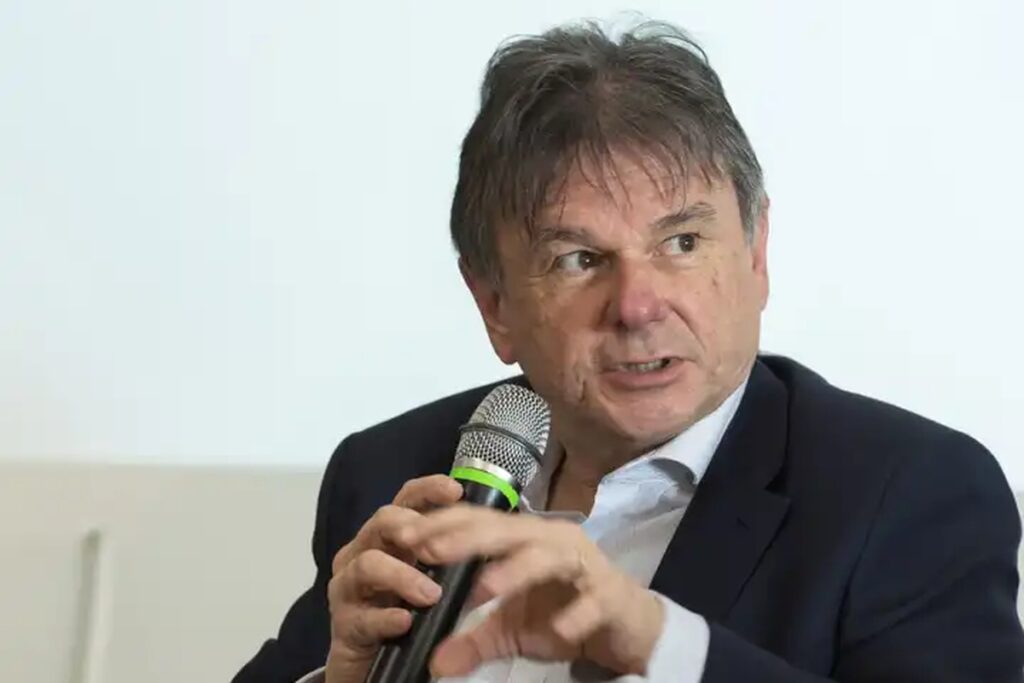Denis Allemand after almost 40 years with CSM: “I’m not giving up research”

After a career spanning almost forty years at the Centre Scientifique de Monaco (CSM), Denis Allemand, the institution’s Scientific Director, is about to begin a new chapter in his career.
A renowned biologist specialising in corals and marine ecosystems, he has made a decisive contribution to the CSM’s international reputation and to the emergence of innovative research.
An example of his visionary leadership was when he coordinated the Tarra Pacific expedition, which brought together around a hundred international scientists to work on ambitious projects. The aim of the research mission to 32 atolls in the Pacific Ocean was to gain a better understanding of coral reef behaviour in response to climate change and human activity.
He has also published over 200 scientific articles and several hundred articles for the general public.
He leaves behind a considerable scientific and institutional legacy.
The CSM, a unique research centre
Created in 1960 at the instigation of Prince Rainier III, the Monaco Scientific Centre’s original mission was to study the Mediterranean and its ecosystems. Since then, it has grown considerably, becoming a cutting-edge research institute with an international reputation in three main areas: marine biology, polar biology and medical biology.
With Prince Albert II, the CSM has strengthened its commitment to studying and protecting the oceans, in keeping with Monaco’s maritime tradition.
Today, the CSM stands out for its modern infrastructure, its international collaborations and its ability to conduct research that walks the line between fundamental science and practical applications. “The CSM is one of the world’s leading laboratories in very advanced fields of research. We truly excel in those fields,” says Denis Allemand proudly. “It’s better to be very good in some areas than average in all of them,” he adds.
“We have created new avenues of research”
He joined the CSM at a time when the Centre was at a strategic turning point. He soon developed ground-breaking projects, particularly in coral physiology, a little-explored field at the time: “We developed innovative topics, ones that hadn’t really been studied until then. We created new avenues of research, such as coral physiology, paediatric cancers, observatories of living organisms, etc. Today, we’re not alone, but we really pioneered these areas,” he explains.
One of his great successes has been to encourage an interdisciplinary approach, building bridges between marine biology, coral biology and medical biology: “It wasn’t easy to build bridges between these disciplines, but it enabled us to broaden our perspectives and make some major discoveries,” he says.
“We are fundamental researchers, meaning that we work in fundamental research, we are here to expand knowledge. Among the results of that fundamental research was the creation of Coraliotech by one of the CSM’s researchers. The startup came out of results obtained in an area where marine biology and coral biology overlap. It shows that, actually, very fundamental research can also become an economic venture, because the start-up is now standing on its own feet and creating jobs,” he adds.
With Denis Allemand at the helm, the CSM has not only made a name for itself through its research in marine and coral biology, but also through its commitment to fields with a strong societal impact, particularly in medical biology.
Aware that Monaco needed to focus on “niches of excellence,” he encouraged the development of research programmes on diseases that affect Monegasque families, such as paediatric cancers and rare diseases. With this in mind, the CSM established partnerships with organisations that are waging these battles, such as the Fondation Flavien, which combats paediatric cancers, and the Association Monégasque contre les myopathies (Monegasque Muscular Dystrophy Association), which focuses its efforts on neuromuscular diseases such as Duchenne muscular dystrophy.
These collaborations have brought about interdisciplinary projects, combining expertise in fundamental biology, gene therapy and clinical research, so as to gain a better understanding of the diseases and explore new therapeutic approaches.
“Semi” retirement

Now that he has handed over his management duties to Sylvie Tambutté, Denis Allemand has two wishes: for the CSM to continue its momentum and for more Monegasques to get involved in research: “What I hope is that the CSM’s momentum will continue. It’s true that the CSM has grown in stature in recent years. That stature must be maintained and enhanced, but keeping the structure on a human scale. There’s still a lot to be done to fill the teams, which are relatively undermanned. I also hope that the CSM will be a place for Monegasques to thrive in years to come. For the moment, the number of Monegasque researchers is still relatively small,” he says.
But he won’t be giving up research. He will stay involved in the precious coral biology project, which he launched over twelve years ago and which will continue until 2025: “I’m not giving up research. Research is about being curious, and you can’t stop being curious. I’ll still be working with CSM for a while yet,” he says. He continues to give lectures, write articles and explore other areas of research, including architecture: “a subject that also interests me.”













